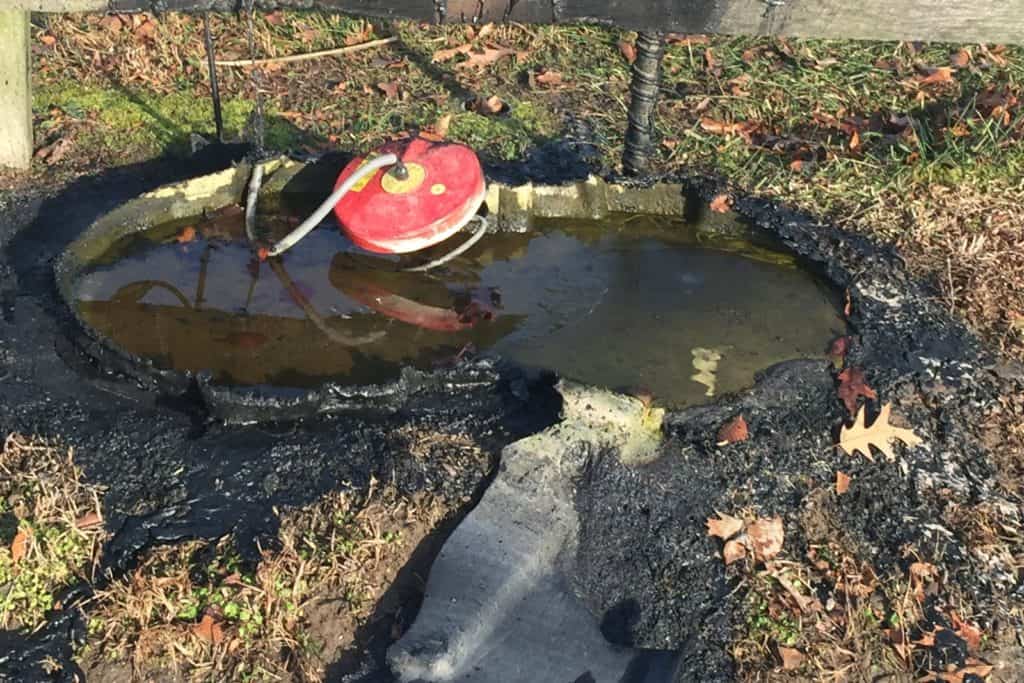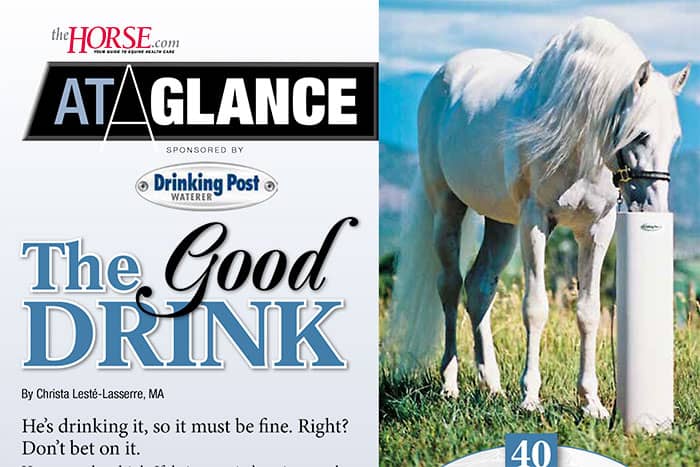
Study: Preload Horses With Electrolytes Before Travel, Exercise
Horses lose large quantities of sodium, potassium, and chloride, as well as smaller amounts of magnesium and calcium, through their sweat. Supplementation before work might help.

Horses lose large quantities of sodium, potassium, and chloride, as well as smaller amounts of magnesium and calcium, through their sweat. Supplementation before work might help.

Texas experienced record-breaking winter weather and power outages in February 2021 that forced owners to get creative to ensure their horses had access to water. Read about their solutions in this reprint.

Horses can live outside in comfort year-round with a few amenities provided by their owners.

From antibiotics and anti-inflammatory tablets to anti-ulcer pastes and deworming medications, we ask our horses to consume a variety of products. Read Dr. Nancy Loving’s top tips and tricks for medicating your horse.

Are you using heated water buckets or troughs this winter? Stay safe with these tips.

Providing a balanced diet that meets your horse’s nutritional needs and being aware of possible shortcomings are vital for his care. Read about seven aspects of your horse’s diet that might not be up to par.

An owner wants to know how to best prepare her senior horse for a move from Florida to Virginia. Dr. Chrissie Schneider offers advice.

Equine nutritionists Abby Keegan, MS, PAS, and Dr. Clair Thunes offer advice on keeping picky drinkers hydrated during travel.

Nutritionist Dr. Clair Thunes talks about the best ways to keep horses fueled and hydrated during competition.

Learn how your horse’s internal thermostat works in extreme heat and ways to keep him cool.

Our equine nutritionist and physiology expert offers advice on managing horses that have stopped sweating.

Electrolytes play an important role in hydration and cellular function in horses. Learn more about electrolytes, when you might need to supplement them, and what research has shown about how they affect performance horses.

Veterinarians from UC Davis offer 10 important tips to prevent heat-related problems in horses.

An equine nutritionist addresses the different types of salt available and how to pick the right one.

Does your horse need a dollop, dab, pinch, or peck? Learn to formulate a diet based on your horse’s age, body condition, and health status.

To ensure your horse stays hydrated, provide him with fresh, clean, clear water at appropriate drinking temperatures. Here’s how.
Stay on top of the most recent Horse Health news with
"*" indicates required fields